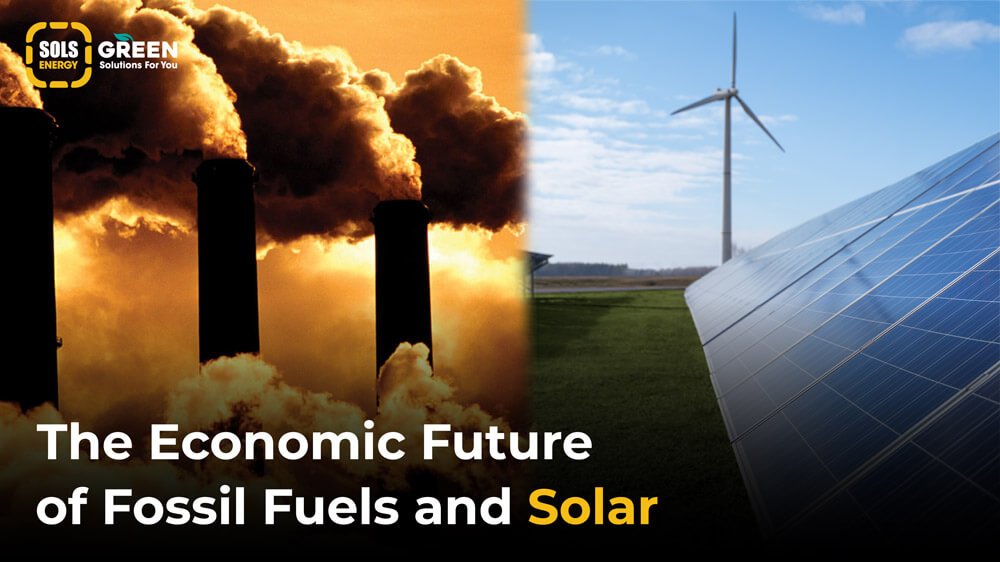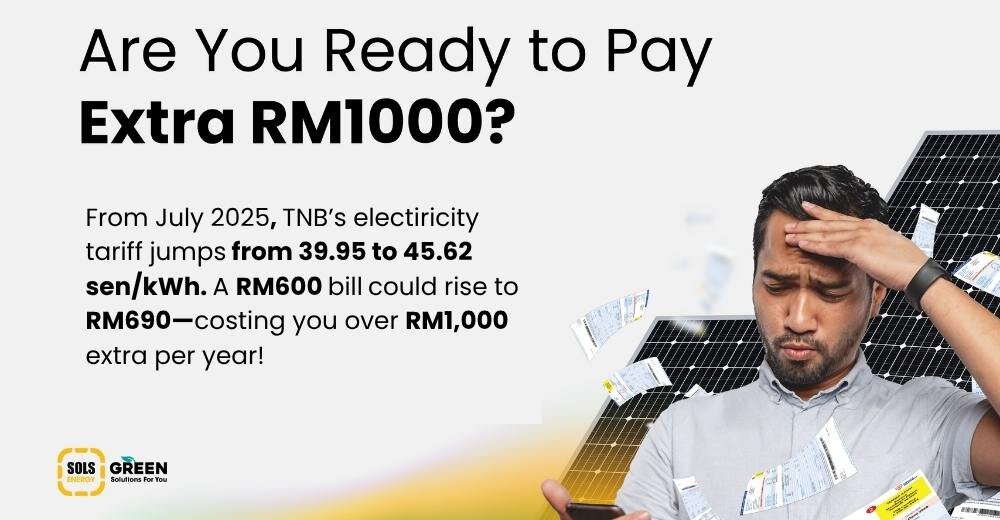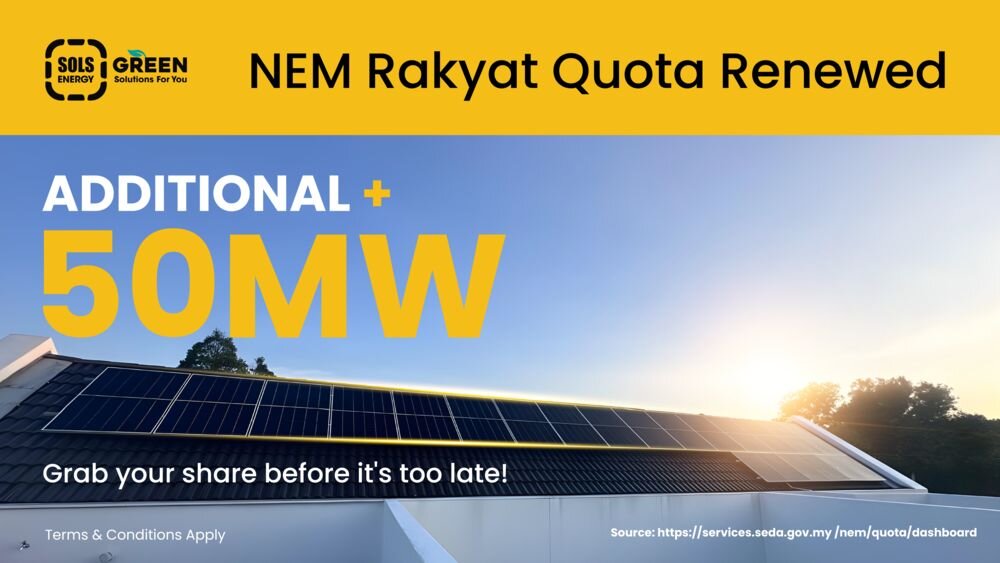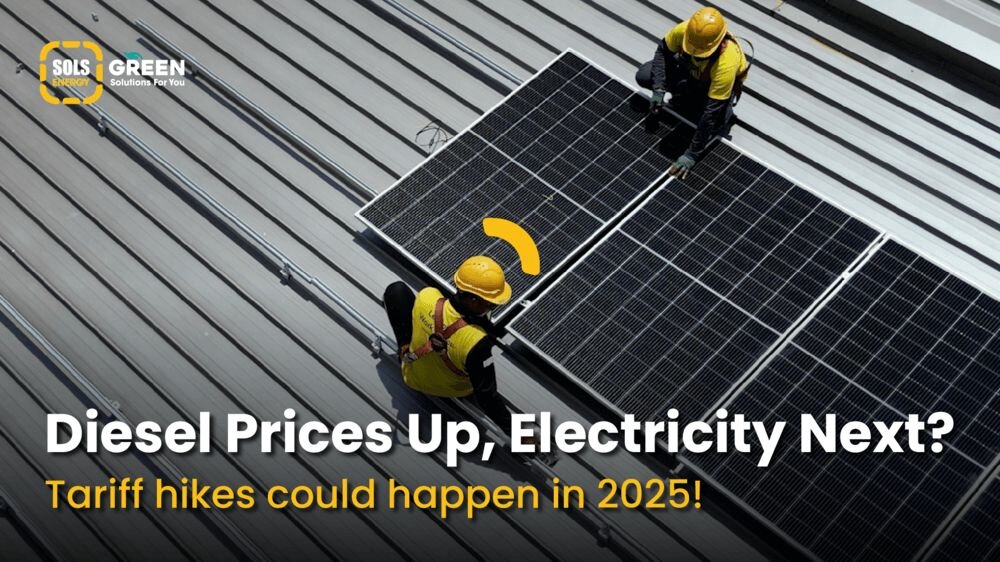The Economic Future of Fossil Fuels and Solar

Due to the traction renewable energy has received in the past few years in Malaysia, solar energy has joined fossil fuels in becoming a primary source of electricity used to run the country’s industries, businesses and homes. While fossil fuels have been the backbone of Malaysia's energy sector for decades, the government as well as the general public have started to recognize solar PV systems as an investment with a high return potential rather than just a clean and renewable alternative. In hindsight, it may seem like fossil fuels are on a much higher growth trajectory, as in order for a homeowner to benefit from solar energy, they still need TNB and its grid. However, on the macro, these energy sources are going through a very different economic and impact journey, as they contend on variables that include price trend, environmental impact, reliability, and energy independence.
1. Solar prices go down as electricity tariffs go up
Renewable and sustainable are the two words most used to describe solar, wind and hydropower. While together they address the difference in lifespan, long-term sustainability is also a viable description when looking at their price trends. Solar prices become more affordable as time goes on, while fossil fuel prices are increasing.
Ultimately, solar energy is:
- Growing in efficiency
- Decreasing in cost to manufacture
- Backed by the Malaysian government with incentives and green policies
- Now looked at as an investment
- A way to save money and significantly reduce electricity costs
On the other hand, fossil fuels are finite resources that are becoming more expensive to extract and refine. As oil reserves become depleted, oil companies are forced to drill deeper and employ more expensive methods to extract oil. These costs are then passed on to consumers, resulting in an increase in energy prices. In Malaysia, the government has been subsidising the cost of fossil fuels to keep prices low, but this is unsustainable in the long run. As prices continue to rise, consumers will be forced to look for alternative sources of energy.
In Malaysia, solar prices have gone down from RM 25K/kWh in the previous decade to just RM 4K/kWh in the present.
Whereas, electricity tariffs have shown a 4.4% increase every year. Which means, in 10 years a RM 400 monthly TNB bill could go up to RM 611, leaving the future generation to get stuck on the continuous cycle of paying high TNB bills that are just going to keep increasing.
2. Demand for solar replaces the demand for fossil fuels
Malaysia’s government has set a goal to become Net-Zero Carbon by 2050. Net-zero carbon means achieving a balance between the amount of greenhouse gas emissions produced and the amount removed from the atmosphere. In other words, the net amount of greenhouse gasses produced is zero.
Solar power is a clean, renewable energy source that does not produce greenhouse gasses or other harmful emissions. In contrast, burning fossil fuels releases carbon dioxide and other pollutants into the atmosphere, contributing to global warming and air pollution. The environmental impact of fossil fuels is a major concern, and our country is trying to reduce their dependence on these non-renewable energy sources.
Thus, renewable energy like solar has a long and prosperous future ahead of them, whereas the world intends to reduce the existence of fossil fuels in our energy mix.
3. Relying on solar has more advantages than the alternative
Undoubtedly, we recognise the high upfront costs of installing a solar PV system for your home. However, in a scenario where solar costs are equal to our monthly TNB bill, would we still choose to rely on fossil fuels when we can produce our own clean energy and not attach ourselves to rising electricity tariff rates?
Installing solar would result in more control over our energy consumption as we release ourselves from the government’s electricity tariffs for life. In contrast, electricity generated from fossil fuels is subject to fluctuations in prices, which are influenced by external factors such as global demand and supply, political instability, and natural disasters. These factors can cause energy prices to spike, making it difficult for consumers to plan their budgets effectively.
In conclusion, solar and fossil fuels differ in several ways. Solar power is becoming increasingly affordable and offers environmental benefits, while fossil fuels are becoming more expensive and have a significant environmental impact. Solar power is also dependent on weather conditions, but offers energy independence and greater control over energy consumption. Fossil fuels are reliable sources of energy, but their availability and price are influenced by external factors beyond our control. As Malaysia moves towards a more sustainable future, it is important to consider these differences and invest in renewable energy sources like solar power.
If you’d like to know how you too can participate in the energy transition for your family and home, do speak to us.
Let Us Customize Your Solar
Fill in this form to claim your Free Power Study worth RM499.











